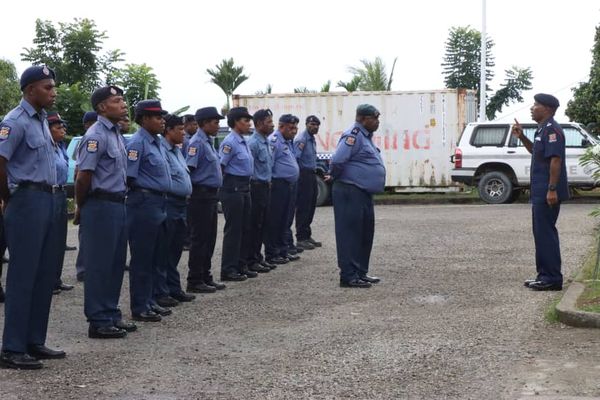Assistant Commissioner of Police (ACP) for Border Divisional Command, Perou N’dranou, has urged police officers in East Sepik Province to use the Fortnightly Performance Assessment (FPA) system to provide proof of their work.
This reporting system helps assess individual performances daily, and the FPA allows officers to track and assess their daily work, ensuring that their efforts are recognized by supervisors.
During his recent visit, ACP N’dranou addressed the frustration of officers who felt overlooked by the recent police promotions; many officers expressed disappointment, feeling that their hard work, especially in rural areas, had gone unrecognized.
East Sepik Provincial Police Commander, Superintendent Christopher Tamari, acknowledged the challenges his team faces, particularly given the tough geographical conditions.
Despite this, the police officers remain dedicated to serving not only East Sepik but also parts of West Sepik Province.
PPC Tamari encouraged his members to accept what has been decided in the police promotions and continue to serve the people of East Sepik.
“Remember that everything happens for a reason and your time will come. Do not be discouraged but keep working.”
ACP N’dranou emphasized that documenting their work through reports is the key to proving their dedication and performance, stressing the importance of sending daily Situational Reports (Sitreps) for the compilation of Major Incident Briefs (MIB).
“How can your supervisors know you’re working? You can work as hard as you can and still be unrecognized or receive no credit from your supervisors because there is no proof,” said ACP N’dranou.
He said that these reports are crucial for decision-making by the executive management at Police Headquarters, explaining that the Royal Papua New Guinea Constabulary (RPNGC) has a system where each province is required to send through a Situational Report every 24 hours to the Police Headquarters in Port Moresby.
The Situation Report consists of each incident that was reported at the Police Stations, the Police actions taken on each incident and the status of the case.
He further explained that these reports from all provinces are then sent to the Police Headquarters where it’s compiled to produce the daily crime briefs for the executive management to make appropriate decisions.
He encouraged the police to use the FPA system to improve their work and to keep track of their progress to demonstrate their commitment to policing in East Sepik Province.
“This system is in place to help you report what you have done in the last 24 hours, I encourage you to make use of this reporting system to prove that the police of East Sepik are working.
“Your job to deter and combat crime is equally important as your job to compile reports. They both work side by side to promote your good work as well as inform the executive management.
“I encourage you all to take the Fortnightly Performance Assessment as a step towards better reporting and keeping track of your good work and to make self-improvements where necessary. The only way we can improve policing services to our people is getting the basic policing foundation right through the applications of Fortnightly Performance Assessments,” says N’dranou.

